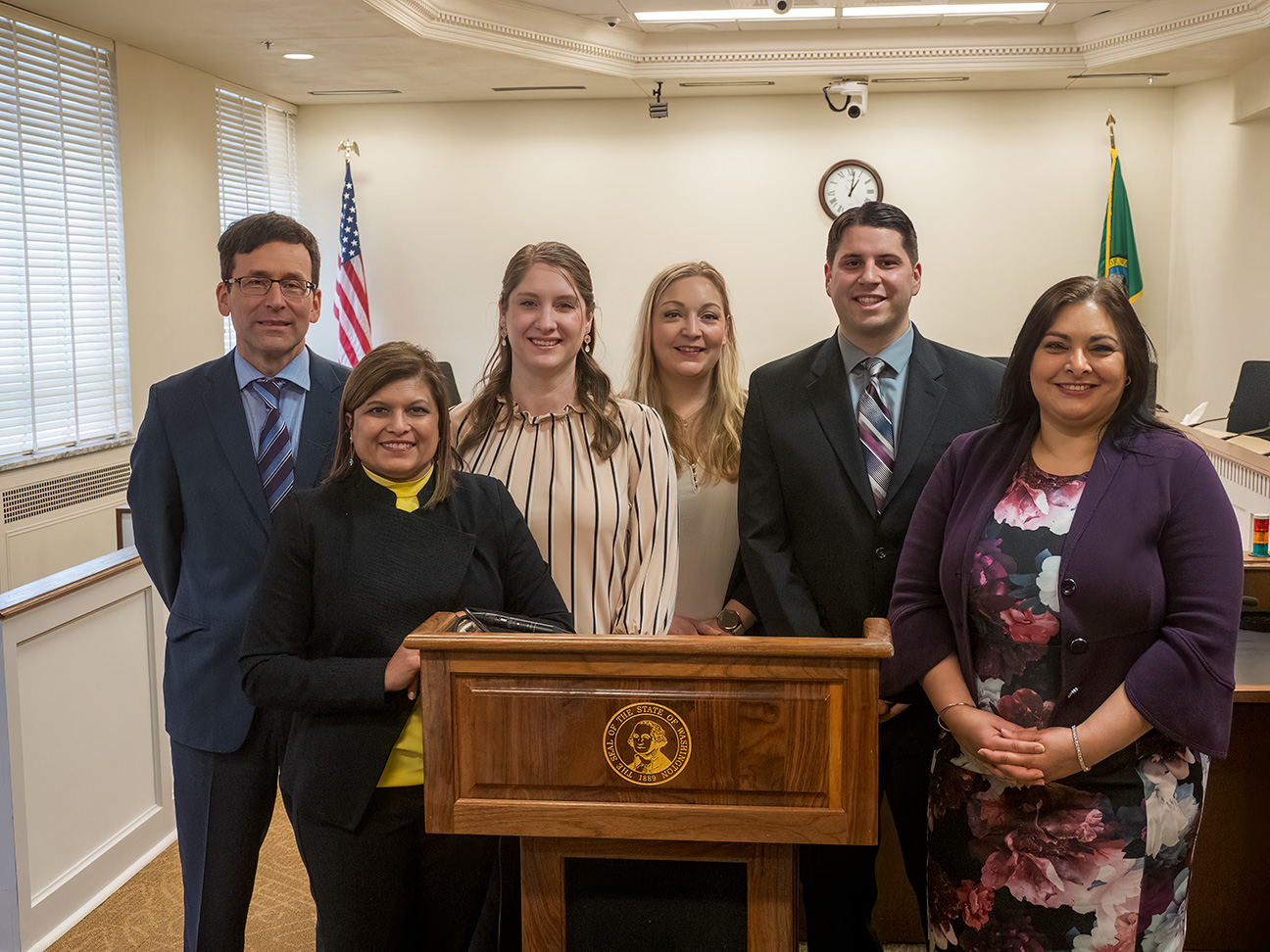Less than an hour ago, legislation requested by Attorney General Bob Ferguson that would provide strong new protections for Washingtonians’ private health data won final passage in the House of Representatives, putting it a gubernatorial signature away from becoming the law of the land in the Evergreen State.
By a vote of 57–40, the House voted to concur in the Senate amendments to House Bill 1155, prime sponsored by Representative Vandana Slatter (D‑48th District: Bellevue, Redmond, Kirkland, Medina, the Points communities.)
Senator Manka Dhingra (D‑45th District: Redmond, Kirkland, Sammamish, Duvall), a Northwest Progressive Foundation boardmember, had the companion bill in the Senate and oversaw the drafting of the amendments.
Those amendments strengthened the bill — as opposed to weakening it, which is the more common scenario when a bill is changed by the opposite chamber — setting the stage for a simple and straightforward concurrence vote in the House.
The Senate’s changes, proposed by Dhingra’s committee, restored the bill to its originally contemplated scope, with a strong private right of action. What that means is that if people find the privacy of their health data has been infringed upon, they can go to the courts to seek justice themselves, rather than having to rely on the Attorney General’s office as the sole enforcer of their rights.
“This law provides Washingtonians control over their personal health data,” Ferguson said in a statement. “Washingtonians deserve the right to decide who shares and sells their health data, and the freedom to demand that corporations delete their sensitive health data — and will now have these protections.”
“Websites, apps and health tracking devices lack the basic protections we’ve come to expect when sharing our personal health data,” Slatter said.
“There is no way to consent or even know about it. We must protect the data of Washingtonians and all who travel here. Without a federal policy, this is where we are and the first in the nation bill we need. I’m glad my colleagues and the attorney general are choosing to rise to the occasion in protecting people’s right to privacy, personal agency and safe medical care.”
“People have a right to keep private health data private,” Dhingra said. “With the My Health My Data Act, Washington becomes the national leader in informing and obtaining consent from consumers when companies collect, share and sell their health care data. It is crucial that people have the ability to request that their private data be deleted once collected, and this bill allows them to do so.”
New research released on April 4th by the Northwest Progressive Institute at an event with Representative Slatter, Senator Dhingra, and Attorney General Ferguson shows that HB 1155 is massively popular. 76% support the legislation’s provisions, with seven out of ten voters strongly supportive overall.
My Health, My Data is one of the most popular ideas we have ever researched.
The House and Senate are to be commended for sending Governor Inslee a strong bill that will be a model for states throughout the country. This is what real leadership looks like — and it comes at a critical time for reproductive rights.
The roll call on final passage in the House was as follows:
Roll Call
HB 1155
Consumer health data
Final Passage as Amended by the Senate
4/17/2023Yeas: 57; Nays: 40; Excused: 1
Voting Yea: Representatives Alvarado, Bateman, Berg, Bergquist, Berry, Bronoske, Callan, Chapman, Chopp, Cortes, Davis, Doglio, Donaghy, Duerr, Entenman, Farivar, Fey, Fitzgibbon, Fosse, Goodman, Gregerson, Hackney, Hansen, Kloba, Leavitt, Lekanoff, Macri, Mena, Morgan, Ormsby, Orwall, Paul, Peterson, Pollet, Ramel, Ramos, Reed, Reeves, Riccelli, Rule, Ryu, Santos, Senn, Shavers, Simmons, Slatter, Springer, Stearns, Stonier, Street, Taylor, Thai, Tharinger, Timmons, Walen, Wylie, Jinkins
Voting Nay: Representatives Abbarno, Barkis, Barnard, Caldier, Chambers, Chandler, Cheney, Christian, Connors, Corry, Couture, Dent, Dye, Eslick, Goehner, Graham, Griffey, Harris, Hutchins, Jacobsen, Klicker, Kretz, Low, Maycumber, McClintock, McEntire, Mosbrucker, Orcutt, Robertson, Rude, Sandlin, Schmick, Schmidt, Steele, Stokesbary, Volz, Walsh, Waters, Wilcox, Ybarra
Excused: Representative Ortiz-Self
The vote on final passage of HB 1155 was a party-line vote, with Democratic representatives supportive and Republicans opposed.
Democratic Representative Lillian Ortiz-Self was excused.
The final version of HB 1155 would, if signed by Inslee:
- Establish consumer rights of access, withdraw consent, and deletion regarding consumer health data.
- Require regulated entities and small businesses to obtain consent in order to collect, share, or sell consumer health data.
- Specify regulated entity and small business obligations regarding consumer health data privacy notice, access, and security requirements.
- Prohibit implementing a geofence around an entity that provides in-person health care services to collect or track data from consumers or to send advertisements related to consumer health data.
- Exempt government agencies, tribal nations, and personal information governed by certain federal or state laws.
- Make violations enforceable under the Consumer Protection Act.
Our thanks to Representative Slatter, Senator Dhingra, and Attorney General Ferguson for their leadership. Without them, we wouldn’t have gotten a strong My Health, My Data Act this session. This is a great victory for Washingtonians.

